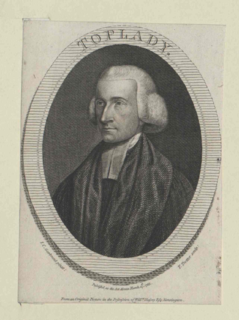A Quote by David Hume
A wise man's kingdom is his own breast: or, if he ever looks farther, it will only be to the judgment of a select few, who are free from prejudices, and capable of examining his work. Nothing indeed can be a stronger presumption of falsehood than the approbation of the multitude; and Phocion, you know, always suspected himself of some blunder when he was attended with the applauses of the populace.
Related Quotes
Without ambition one starts nothing. Without work one finishes nothing. The prize will not be sent to you. You have to win it. The man who knows how will always have a job. The man who also knows why will always be his boss. As to methods there may be a million and then some, but principles are few. The man who grasps principles can successfully select his own methods. The man who tries methods, ignoring principles, is sure to have trouble.
No man is so foolish but may give another good counsel sometimes; and no man is so wise, but may easily err, if he will take no others counsel but his own. But very few men are wise by their own counsel; or learned by their own teaching. For he that was only taught by himself had a fool to his master.
The Lord gave the wonderful promise of the free use of His name with the Father in conjunction with doing His works. The disciple who lives only for Jesus' work and kingdom, for His will and honor, will be given the power to appropriate the promise. Anyone grasping the promise only when he wants something very special for himself will be disappointed, because he is making Jesus the servant of his own comfort. But whoever wants to pray the effective prayer of faith because he needs it for the work of the Master will learn it, because he has made himself the servant of his Lord's interests.
Let us not forget that violence does not live alone and is not capable of living alone: it is necessarily interwoven with falsehood. Between them lies the most intimate, the deepest of natural bonds. Violence finds its only refuge in falsehood, falsehood its only support in violence. Any man who has once acclaimed violence as his method must inexorably choose falsehood as his principle.
The value of an idea has nothing whatsoever to do with the sincerity of the man who expresses it. Indeed, the probabilities are that the more insincere the man is, the more purely intellectual will the idea be, as in that case it will not be coloured by either his wants, his desires, or his prejudices.
There is no crime more infamous than the violation of truth. It is apparent that men can be social beings no longer than they believe each other. When speech is employed only as the vehicle of falsehood, every man must disunite himself from others, inhabit his own cave and seek prey only for himself.
In the absence of government each man learns to think, to act for himself, without counting on the support of an outside force which, however vigilant one supposes it to be, can never answer all social needs. Man, thus accustomed to seek his well-being only through his own efforts, raises himself in his own opinion as he does in the opinion of others; his soul becomes larger and stronger at the same time.
Good work is no done by "humble" men. It is one of the first duties of a professor, for example, in any subject, to exaggerate a little both the importance of his subject and his own importance in it. A man who is always asking "Is what I do worth while?" and "Am I the right person to do it?" will always be ineffective himself and a discouragement to others. He must shut his eyes a little and think a little more of his subject and himself than they deserve. This is not too difficult: it is harder not to make his subject and himself ridiculous by shutting his eyes too tightly.
Whoever is wise is apt to suspect and be diffident of himself, and upon that account is willing to "hearken unto counsel"; whereas the foolish man, being in proportion to his folly full of himself, and swallowed up in conceit, will seldom take any counsel but his own, and for that very reason, because it is his own.







































